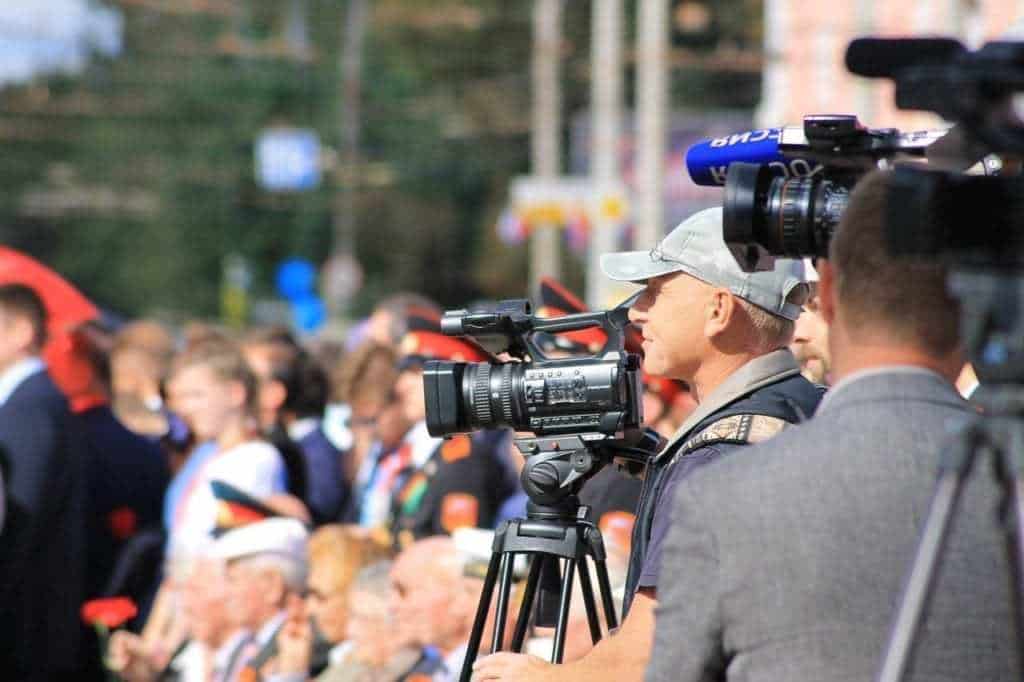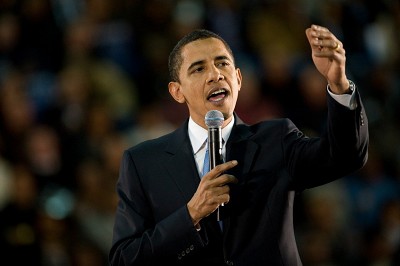10 AWESOME TIPS ON HOW TO START A SPEECH WITH A BANG!
How to start a speech with a bang? What makes a great introduction to your speech, and how should you prepare to open your speech like a pro? Today, I will be sharing ten great tips that should prove helpful in your quest to craft that great introduction to your speech.
First impressions, they say, last longer. It is often always challenging to convince people of what your intentions really are when you mess it up the first time. If you want to persuade, convince, inform, educate, and inspire people through your speech, making sure that you start your speech with a bang is by far the most important thing. You probably know how to begin with power and purpose; you are just not sure how.
Another very critical thing to have in mind is realizing and preparing yourself according to the type of speech that you will be delivering. After all, it will make no sense if you start a eulogy with a quiz, so be sure to always take into consideration what kind of speech is appropriate for the occasion before preparing your great starting point. I have shared in another post 10 types of speeches, when and how to use them. I am sure there are some insightful tips for you there, you can read it here.
The way you start your speech is always of keen interest to your audience; this determines the level of attention you will be getting from them. Imagine you starting on a poor note, and they are wondering what you are blabbing about. Most of them will lose interest. They might bring their attention back to you along the way, but you have spoilt their first impression of you which would go a long way.
When it comes to influencing listeners and speakers in speech or presentations, two concepts matter which is primacy and recency. Recency states that people tend to remember what you say at the beginning of a speech, while regency states that people hold on to how you end your speech, these two essential concepts should help a speaker in preparing mostly on his introduction and his conclusion.
From your opening, the audience gets to deduce whether you will be interesting or not and decide if you are with their interest in the first place. It is at the point of introduction you set your pace and tell them why you want them to listen to you. Your audience needs to be engaged and favorable towards you during your presentation, and this can only come to play if you can catch their attention at the beginning of the presentation.
Starting your presentation with a bang involves a lot of imagination, creativity, and techniques. However, it is easier when you know what you want to present well to the audience. Never start by telling them straightforward about what you want to talk. It is very boring, dry and lacks creativity. Be creative and exceptional. More often than not, people don’t like ordinary things; it gets tiring. Look for something that will pique the interest of your listeners and perhaps surprise them.
A few minutes of focused thinking is all you need to create the perfect introduction. Also, avoid introducing your introduction like saying “before I begin… ” when you have already begun. Just tell us the story, the reference, the joke or the quote that will excite your audience and pique their interest. Remember the best grabbers engage an audience immediately both intellectually and emotionally.
10 Awesome Tips on how to start a Speech
The audience makes judgments about you in your first minute. Once you ace that, you wouldn’t have difficulty in convincing them and changing their opinions into how you want it to be. Here are some starting bangers in which you can use to excite your audience:
1. Start off with a Game/Quiz
I had this fantastic experience with a presenter who came to us and before anything else he asked all of us to start playing a game.
She said something in the ear of the first person in a group of 35 people, and asked that person to whisper that same message in the ear of the next person and so on. It was more like an experience we conducted with one another to assess the quality of information that we could maintain as we passed it over and over from one person to the next.
Now, the topic of discussion was the importance of communication and precise feedback in project management, and we had been in that same room for a few hours getting other presenters to teach us their subjects, so we were tired.
At the end of this little experiment, we were amazed to realize that the original message that was whispered in the ear of the first person in the group never made it to the last, we were saying absolute nonsense at some point, and we started laughing when we found that out. So, you can imagine how she got everyone to take that lesson seriously, despite the long day. It was a great way to start, and it had a positive impact on the attention everyone in the group gave to the presenter.
My first blog post ever was one where I wrote about 5 tips to engage your audience, which after some time, I polished and made it into a free eBook, which you can grab by clicking on this link, in that post I also mentioned the critical importance of using quizzes and games as a breaking the ice technique. I think you could check out the original post and get further insights on how to engage your audience, just follow the link.
2. Give Compliments:
You could always start by thanking or complimenting the audience. Trust me; everyone loves to be appreciated. Refer to the people who introduced you or one or more senior people in the congregation. This makes them feel proud and happy that you are acknowledging them. They feel satisfied with your presence and connect you to the audience. Them getting to know you from a reliable source makes them eager to want to hear from you.
3. Use Compelling Storytelling :
You can start with a story; almost everyone has a hidden curiosity that peeks out when they hear a story being told. One of the most powerful but common words to grab the attention of the audience is “once upon a time… ” at other times you can decide to start your story from a different approach.
You can go with “There was a certain young lady who came to this city… ” from a tender age, we all loved hearing stories. When you start with these, people automatically know that a story is coming and immediately settle down to listen to what you want to say.

Mastering the right storytelling techniques and properly using it to engage your audience is a crucial and useful skill all presenters, orators, or leaders should have. You would notice that even people about to leave a room at that period would stop to listen to you.
4. Be an entertaining speaker (Know your Audience):
To begin a speech you should also learn to be entertaining, enjoyable to watch or listen to. Throw occasional jokes into your speech (if you have the skills to do so), bring in some fun statistics that piques the interest of the audience, it could be something related to the human body, brain, thinking patterns, differences between men and women, and so on.
The more engaging you are, the more the audience wants to hear from you. You could pass a message through light jokes; you would notice the audience laughing and nodding at the same time. You have to take note, however, that knowing your audience is key, you don’t want to tell a joke that may trigger the wrong reaction, so learn how to conduct an audience analysis, and make sure you are giving the right signals to the audience.
Here is an example of a story: “an atheist who wanted to mock God by buying gifts for a Believer who prayed to God to bless her. The atheist was shocked when the lady thanked God in his presence for even using the devil to bless her.”
You can use that story to introduce the message of how God uses the most amazing plans to help the Believers or to Convert the non-believers into Believers. The audience may laugh, but they will get the message therein. They will be eager to hear more. Be entertaining; let them pick an interest in your work from the start.
5. Make good use of Questioning tactics:
You can be positive by making a statement and then asking a question that requires a show of hands from the audience willing to participate. You can start by saying
“Every news and social media has been posting the news of the upcoming Valentine, and I can sense the tension in the air from our men and excitement from our ladies. How many ladies here are excited about the Valentine celebration?…… ” almost all the ladies present there will probably raise their hands. Then you will confirm in the affirmative by saying. “Of course you all are. There will be several gifts rolling in from everywhere.”
6. Quote recent research/studies:
You can also start your presentation by quoting from recent research. Quoting not only makes your audience see you as knowledgeable but also gives them a kind of confidence that you are certain of what you are saying.
An example is:
” In a series of recently published studies using animals and people, researchers say they have further characterized a set of chemical imbalances in the brains of people with schizophrenia-related to the chemical glutamate. And they figured out how to tweak the level using a compound derived from broccoli sprouts.” Johns Hopkins Medicine, May 2019.
This kind of research wows the audience and keeps them listening to the why and how. They would want to know how you came about your research and how they can also benefit from the knowledge.
7. Capture the Audience attention with a common Problem:

You can start by presenting a problem that must be addressed. It must be a common problem bothering everyone and one in which they would want to participate. It could dwell on the economy, unemployment, relationship issues and so on. It has to be one that will keep them alert to want to hear what the Solution will be. You will immediately have the audience immediate and undivided attention, and you would see some willing to jot down your points.
8. Add in a personal touch with Recent conversations:
People tend to show interest in your personal life more and are keen to know the experience of a speaker or presenter. So you could also start from a recent conversation you had relating to the subject. You can start by saying “On my way here I met a colleague of mine way back from school and we got talking, on the way we saw a feeble older woman being fed by her son, who showed incredible patience towards her. He made some points which I noted. He said… ”
9. Celebrity Quotes are a tremendous Go-to opening statement:
You can also start your speech by quoting a well-known person. People love to hear what famous people had to say, especially if it is a well known and respected person in the society. For instance quotes from people like Bill Gates, Nelson Mandela and other well-respected men gets the audience linked into your conversation. You can say something like “in the 21st century, knowledge and know-how are the keys to success” as basketball coach Riley said, “if you are not getting better, you are getting worse.”
10. Mix in Recent events to make the topic relatable
Start your presentation by referring to current news events in society. As a presenter, you should know what is viral in the community and on all social media networks, and you work on it by relating your presentation to that event and picking out your topic from it.

By taking note and using recent news, and viral cases on social media, you will get the audience interested and surprised if they never saw that story in that aspect in which you have portrayed it. You can make use of visual representation by showing the audience what you are referring to on a projector and you will be impressed to see their attention shift to what you are showing them and they trying to get what you are talking to them about. Asides from visual effects you can also come in with sound effects from the event by playing it in the background and watch the audience get excited over it then you can say
“I’m glad to see you are all excited and piqued up about this music, how excited will you be when I tell you the message behind this? Will, you still be this excited?” at that moment you have their attention.
CONCLUSION
Are you wondering, ‘what should I do next?’ ‘What if I freeze after a great start or worse before I start?’ or ‘how to appear confident while speaking in public?’ or ‘how to become a confident speaker?’ or ‘I need more ideas on how to keep my audience engaged, or how to make the rest of speech as amazing and memorable to the audience?
If these are some of the questions you have, don’t worry I have got you covered. I have been writing articles that cover most of these concerns for my readers, and they’ve had good reception and feedback, so I am sure they can help you as well.
Are interested in learning how to write a memorable speech? then this article is your best bet to get some easy to learn tricks. I am sure you want to also know how to keep an audience engaged and deliver an entertaining experience to them, here’s a free eBook with six proven tips, and guidelines on how you can achieve that.
If you are afraid of the whole experience, and I mean you are anxious and nervous about standing in front of the audience, then this article with 13 tips on how to deal with performance anxiety in public speaking is your friend, it is a bit long but worth reading. I included some of the reasons why people are afraid of performing in front of others and gave several examples of how that stops us from benefiting of many of life’s opportunities.
These are some of the tips I wanted to share with you regarding how to start a speech with a bang and ensure that you capture the audience’s attention right from the start.
Your comments below with additional tips you’d recommend, or use to ensure you deliver an outstanding experience to your audience right from the start of your speech will be appreciated. Thanks!
REFERENCES &FURTHER READING
Gary Genard, Speak for Success, How to Start a Speech – 12 foolproof ways to grab your audience! https://www.genardmethod.com/blog/bid/142073/how-to-start-a-speech-12-foolproof-ways-to-grab-your-audience?success=true. Accessed on 05/12/2019.
Brian Tracy, 15 ways to star a Speech + Bonus Tips. https://www.briantracy.com/blog/public-speaking/how-to-start-a-speech/ . Accessed on 05/12/2019.








